Copyright 1996 by Jeffrey Toobin
All rights reserved under International and Pan-American Copyright Conventions. Published in the United States by Random House, Inc., New York, and simultaneously in Canada by Random House of Canada Limited, Toronto.
Random House website address: http://www.randomhouse.com/
eISBN: 978-0-307-82916-0
v3.1
Nicole:
Well, it seems that the worst part is behind us.
I want you to know that whatever you might think
to the contrary Iv taken full responcibility for this.
It happen and Im doing everything possible to assure
it doent happen agan. But sooner or later we must
starte with our future. I love our time last weekend.
I know to you it may not have been much but it
showed we can get along.
I love you and losing you is the only thing that
madder to me. So lets not forget the past. Lets work
together (for the first time) to improve the futurr
live together. Know manner what I love you.
O.J.
Letter from O.J. Simpson to Nicole Brown Simpson,
following his plea of no contest to domestic violence
charges in 1989
CONTENTS

PROLOGUE:
WHAT THE LAWYERS KNEW
O ne after another, the Jaguars, the BMWs, and the odd Porsche pulled off the Avenue of the Stars and slipped into the nearly deserted underground parking garage. The owners of these cars, about two dozen of the top lawyers in West Los Angeles, greeted each other with slightly embarrassed smiles. All white, virtually all men, and mostly in their early fifties, they reflected the culture in which they had thrived, one where workaholism was no virtue and a weekend in the office anathema. Yet here they were, on a glorious summer Saturday afternoon, June 25, 1994, forsaking golf and family for a meeting in a Century City tower. They came because everyone wanted a piece of this casethe defense of Orenthal James Simpson against charges that he had murdered his ex-wife Nicole and her friend Ronald Goldman.
Besides, they came because Robert Shapiro, Simpsons lead lawyer, had asked them. Many of these lawyers, who were among those closest to Shapiro, never knew precisely what to make of their friend. They could quickly catalogue his faults: his outsize ego; his self-obsession; his excessive comfort with the moral ambiguities of his profession. Bob would have cocktails with Hitler, the wife of one of the lawyers at the meeting used to say. They chuckled at his endless socializing; Shapiro owned three tuxedos. He had once declined a lunch date with one of the lawyers, Alvin Michaelson, by explaining, without a touch of humor, I only have lunch with people who can help me. Its part of my workday. I eat with clients, judges, and prosecutors. But so, too, these lawyers knew another side of Shapiro, that of the generous friend. When the wife of Roger Cossack, another lawyer at the meeting, had died a few years earlier after a terrible bout with cancer, Bob Shapiro had been the first person to arrive at Cossacks house to offer comfort after the funeral. When the Internal Revenue Service had begun investigating scores of professional athletes for evading taxes on the income they made from appearing at autograph shows, many had come running to Shapiro for assistance. He in turn had referred much of that business to his friends and, consequently, had paid for the additions to more than a few lawyers houses. They remembered that. So they answered his call.
Shapiro greeted his colleagues on this Saturday with his trademark bear hugs and ushered them into a conference room. If you looked carefully out the window, you could make out Bundy Drive, in Brentwood, just three miles west. Thirteen days before this meeting, Nicole Brown Simpson and Ronald Goldman had been murdered near the front steps of her home on Bundy. A pair of late-night dog walkers had discovered the grisly scene: Nicole, at the foot of the front steps, her throat slashed down to the vertebrae; Ron, in a heap nearby, his torso and neck both savaged by fatal wounds. The following week, Shapiro had been retained to represent the prime suspect in the case, O.J. Simpson, who was Nicoles ex-husband as well as a very famous man. On June 17, the day Shapiro had agreed that Simpson would surrender to police, the former football star vanished. With virtually the entire nation watching on television, Simpsons friend Robert Kardashian read what sounded like a suicide note that Simpson had left behind. In the end, Simpson did not take his own life. He eventually turned himself in later that day, following a surreal, televised chase on the freeways of Southern California.
Technically, the space where the attorneys gathered was not really Shapiros at all. Because he didnt have a conference room of his own, Shapiro had borrowed one from the large law firm where he rented space. Under the pressures of the Simpson case, Shapiro would come to use it so often that he eventually broke down and added the conference room to his sublet arrangement. Like most criminal defense attorneys, even the best known, Shapiro ran a lean business operation. He had a secretary and two young lawyers as associates. Every month, Shapiro wrote out by hand all the checks to cover his office expenses, including payroll. In recent years, he had had no trouble meeting that payrollbusiness was goodbut Shapiro was ever mindful of the criminal defense attorneys dilemma: Successful though one may be, one can never count on repeat business. An unending supply of new clients must always be found. The quest for clientshis own and his friendswas an important subtext for the gathering he had assembled this summer afternoon.
Summoning the participants by telephone earlier in the week, Shapiro had said he wanted to discuss the Simpson case. The preliminary hearing would begin the following Thursday, June 30. Shapiro said he wanted to pick the brains of the best in the business beforehand. Please help me, he said. I need your advice.
The lawyers came running, as Shapiro knew they would, for he understood that the invitation itself was a gift. The Simpson case was already a national sensation. In the gossipy, competitive Los Angeles legal world, Shapiro discerned that his conclave would be (in fact, already was) the talk of the city. Any lawyer would treasure the opportunity to mention the fact that Bob Shapiro had called to talk about the O.J. case. Friends, fellow lawyers, and, especially, clients (and even more especially prospective clients) would be impressed. The high end of criminal defense law operates almost entirely on a referral basisthat is, lawyers are hired because other lawyers recommend themand Shapiro knew that his guests on this Saturday would not soon forget he had included them in this extraordinary session. A profitable referral to Shapiro would be the appropriate gesture of gratitude.
After the lawyers had settled in around the large oval table, Shapiro began the proceedings with a question.
So, he said. How many of you think O.J. did it?
Everyone froze. After a moment, a few lawyers chuckled nervously and others rolled their eyes. In a flash, Shapiro had brought home just how strange this meeting was. Defense lawyers talk to each other about their cases all the time, often with brutal candor. Does my guy take a plea or not? Is my case triable? Winnable? In these discussions, guilt is a given; experienced criminal lawyersthe successful onesharbor few illusions. These chats are private; the cases are usually unknown to the public. But Shapiro was talking about what was well on its way to becoming the most sensational legal proceeding in American history. This was not the kind of questionor so it seemedthat an experienced criminal defense attorney would want answered in a quasi-public setting.

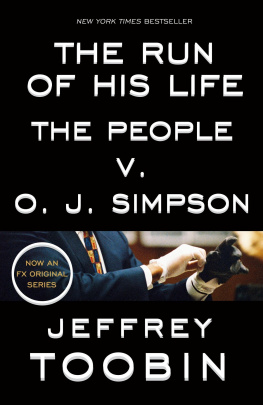
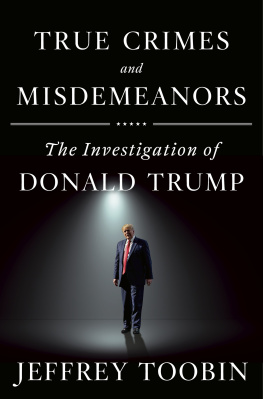
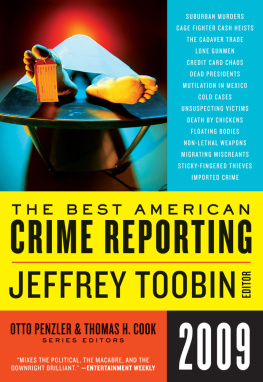

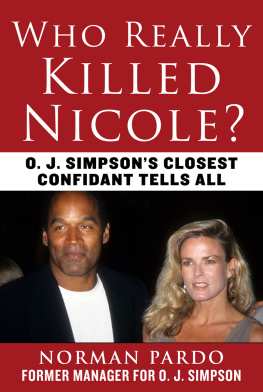
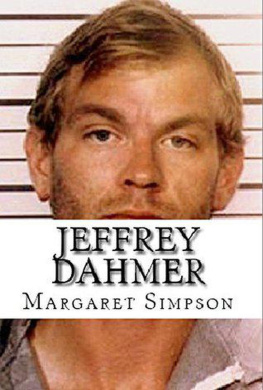
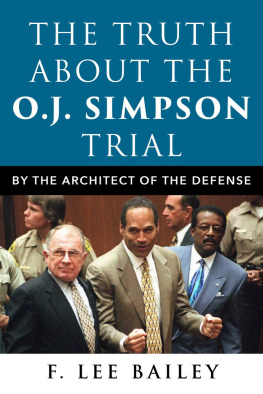
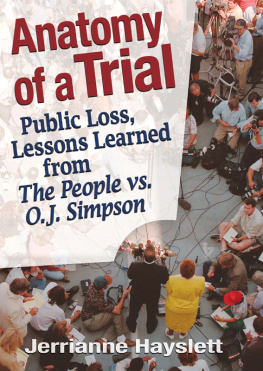
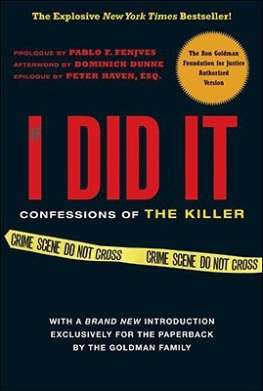
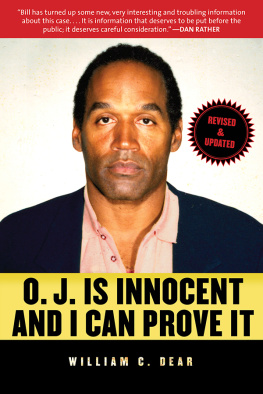
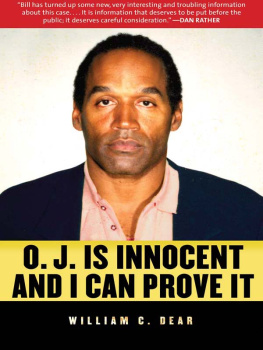
![Sadakat Kadri [Sadakat Kadri] - THE TRIAL: A History from Socrates to O. J. Simpson](/uploads/posts/book/57415/thumbs/sadakat-kadri-sadakat-kadri-the-trial-a.jpg)

